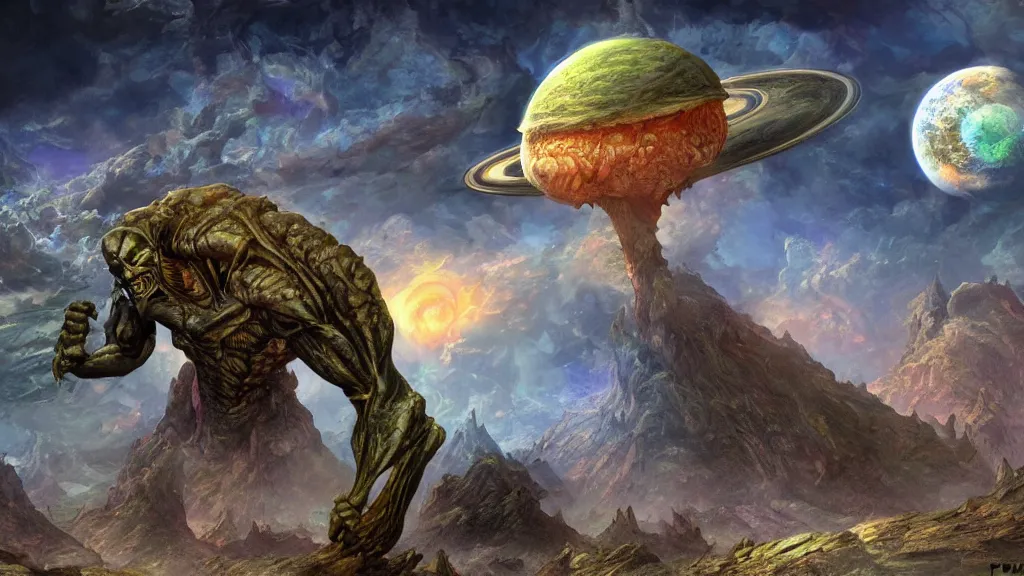
Douglas Adams’ “The Hitchhiker’s Guide to the Galaxy” is a classic science fiction novel that explores the absurdities of life and the universe. The book, which was first published in 1979, is the first in a series of five books that follow the adventures of the hapless space traveler Arthur Dent and his alien friend Ford Prefect as they travel through space and time. Through their experiences, the reader is given a glimpse into a world that is both strange and familiar, and the many ways in which the universe can be both absurd and terrifying.
The central theme of the book is the absurdity of life and the universe. The world of “The Hitchhiker’s Guide to the Galaxy” is characterized by its strange and unpredictable events, its absurd characters, and its many contradictions. Through their experiences, Arthur and Ford are given a powerful reminder of the many ways in which life and the universe can be both absurd and hilarious. As Ford says, “The ships hung in the sky in much the same way that bricks don’t.”
Another key theme of the book is the importance of humor and satire in the face of adversity. Throughout their journey, Arthur and Ford encounter a wide range of challenges and obstacles, from the destruction of Earth to the machinations of the evil Vogons. However, they are able to overcome these challenges and to find humor and satire in even the most dire of situations. As the narrator of the book says, “The ships hung in the sky in much the same way that bricks don’t.”
The book is also a commentary on the dangers of technology and the consequences of using science and technology to control and manipulate the world around us. The world of “The Hitchhiker’s Guide to the Galaxy” is characterized by its advanced technologies, including space travel, time travel, and the creation of artificial intelligence. These technologies serve to reinforce the absurdity of the world and to highlight the dangers of using science and technology to control and manipulate the universe.
 The character of Arthur Dent is a central aspect of the book’s overall impact. Through his experiences, the reader is given a glimpse into the world of “The Hitchhiker’s Guide to the Galaxy” and the many absurdities of life and the universe. Arthur’s journey of self-discovery and his growing understanding of the world around him serve as a testament to the importance of humor and satire in the face of adversity.
The character of Arthur Dent is a central aspect of the book’s overall impact. Through his experiences, the reader is given a glimpse into the world of “The Hitchhiker’s Guide to the Galaxy” and the many absurdities of life and the universe. Arthur’s journey of self-discovery and his growing understanding of the world around him serve as a testament to the importance of humor and satire in the face of adversity.
The book’s portrayal of the universe is both absurd and hauntingly believable. The world of “The Hitchhiker’s Guide to the Galaxy” is characterized by its strange and unpredictable events, its absurd characters, and its many contradictions. The book’s vision of the universe is both hilarious and thought-provoking, and it serves as a reminder of the many ways in which life and the universe can be both absurd and terrifying.
The book’s use of humor and satire is also a central aspect of its overall impact. The characters in “The Hitchhiker’s Guide to the Galaxy” are constantly finding humor and satire in even the most dire of situations, and their irreverent and often absurd perspectives serve to reinforce the book’s central themes and to bring the world of “The Hitchhiker’s Guide to the Galaxy” to life for the reader.
In conclusion, “The Hitchhiker’s Guide to the Galaxy” is a cosmic adventure through time and space that explores the absurdities of life and the universe. The book’s themes of the absurdity of life, the importance of humor and satire, and the dangers of technology are as relevant today as they were when the book was first published. The book’s memorable characters, absurd world, and hilarious humor make it a must-read for anyone looking for a fun and thought-provoking adventure through the universe. The book’s enduring popularity is a testament to its timeless themes and its powerful impact on generations of readers. Whether you are a fan of science fiction or just a lover of great storytelling, “The Hitchhiker’s Guide to the Galaxy” is a book that will stay with you long after you have finished reading, and its message of hope, resilience, and the importance of humor and satire will continue to inspire and challenge readers for generations to come.


